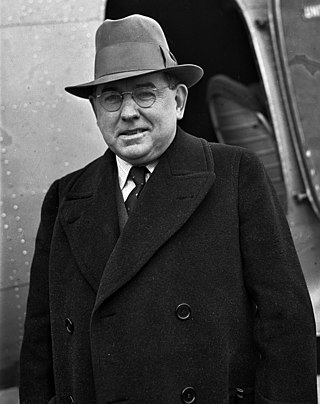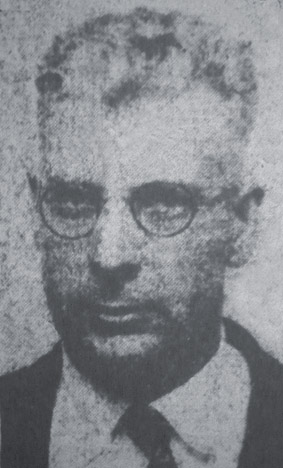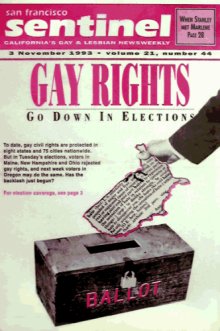
Charles Augustus Lindbergh was an American aviator and military officer. On May 20–21, 1927, he made the first nonstop flight from New York City to Paris, a distance of 3,600 miles (5,800 km), flying alone for 33.5 hours. His aircraft, the Spirit of St. Louis, was designed and built to compete for the $25,000 Orteig Prize for the first flight between the two cities. Although not the first transatlantic flight, it was the longest at the time by nearly 2,000 miles (3,200 km) and the first solo transatlantic flight. It became known as one of the most consequential flights in history and ushered in a new era of air transportation between parts of the globe.

Eureka is a city and the county seat of Humboldt County, located on the North Coast of California. The city is located on U.S. Route 101 on the shores of Humboldt Bay, 270 miles (435 km) north of San Francisco and 100 miles (161 km) south of the Oregon border. At the 2020 census, the population of the city was 26,512 and the population of the greater Eureka area was 48,119.

The New York World was a newspaper published in New York City from 1860 to 1931. The paper played a major role in the history of American newspapers as a leading national voice of the Democratic Party. From 1883 to 1911 under publisher Joseph Pulitzer, it was a pioneer in yellow journalism, capturing readers' attention with sensation, sports, sex and scandal and pushing its daily circulation to the one-million mark. It was sold in 1931 and merged into the New York World-Telegram.

Thai Americans are Americans of Thai ancestry. The Thai American population is racially and ethnically diverse, consisting of many Thais who identify as mixed race and as Thai Chinese.

Kathleen Thompson Norris was an American novelist and newspaper columnist. She was one of the most widely read and highest paid female writers in the United States for nearly fifty years, from 1911 to 1959. Norris was a prolific writer who wrote 93 novels, many of which became best sellers. Her stories appeared frequently in the popular press of the day, including The Atlantic, The American Magazine, McClure's, Everybody's, Ladies' Home Journal, and Woman's Home Companion. Norris used her fiction to promote family and moralistic values, such as the sanctity of marriage, the nobility of motherhood, and the importance of service to others.

Grace Cunard was an American actress, screenwriter and film director. During the silent era, she starred in over 100 films, wrote or co-wrote at least 44 of those productions, and directed no fewer than eight of them. In addition, she edited many of her films, including some of the shorts, serials, and features she developed in collaboration with Francis Ford. Her younger sister, Mina Cunard, was also a film actress.
Sally Stanford was an American madam, restaurateur, city council member, and a former mayor of Sausalito, California. From 1940 to 1949, she was madam of a bordello at 1144 Pine Street in the Nob Hill neighborhood of San Francisco, in a house designed by architect Stanford White.

Patrick William Riordan was a Canadian-born American prelate of the Catholic Church who served as Archbishop of San Francisco from 1884 until his death in 1914. He served during the 1906 San Francisco earthquake, and he was a prominent figure in the first case submitted to the Permanent Court of Arbitration.

The Pulitzer Prize for Reporting was awarded from 1917 to 1947.

Paul Welrose White was an American journalist and news director who founded the Columbia Broadcasting System's news division in 1933 and directed it for 13 years. His leadership spanned World War II and earned a 1945 Peabody Award for CBS Radio. After his departure from CBS in 1946 he wrote a textbook on broadcast journalism, News on the Air (1947). Since 1956 the Radio Television Digital News Association has presented the Paul White Award for lifetime achievement as its highest honor.

Charles Freeman Erb Jr. was an American college football player and coach. He served as the head football coach at the University of Nevada, Reno in 1924, the University of Idaho from 1926 to 1928, and Humboldt State College from 1935 to 1937, compiling a career coaching record of 28–19–7.

John Jefferson De Haven was a United States representative from California, an associate justice of the California Supreme Court and a United States district judge of the United States District Court for the Northern District of California.

Peter Bernhard Kyne was an American novelist who published between 1904 and 1940. He was born and died in San Francisco, California. Many of his works were adapted into screenplays starting during the silent film era, particularly his first novel, The Three Godfathers, which was published in 1913 and proved to be a huge success. More than 100 films were adapted from his works between 1914 and 1952, many of the earliest without consent or compensation. Kyne created the character of Cappy Ricks in a series of novels.

Fred Hartsook was an American photographer and owner of a California studio chain described as "the largest photographic business in the world" at the time, who counted Henry Ford, Charles Lindbergh, Mary Pickford, and sitting President Woodrow Wilson among his celebrity clients. He later became the owner of the Hartsook Inn, a resort in Humboldt County, and two ranches in Southern California on which he reared prized Holstein cattle. Hartsook was married to Bess Hesby, queen of the San Francisco Pan-Pacific Exposition of 1915.
Dale Van Every was an American writer, film producer, and studio executive.

Vern Ralph Smith was an American left wing journalist who served in an editorial capacity for several publications of the Industrial Workers of the World and the Communist Party USA (CPUSA). Smith is best remembered as the Moscow correspondent of the CPUSA's The Daily Worker during the middle-1930s.

The San Francisco Sentinel is an online newspaper serving the LGBTQ communities of the San Francisco Bay Area. Originally a weekly print periodical, the Sentinel covers local San Francisco politics, news and social events, and international news of interest to the gay community.

Frederick Alonzo Bee (傅列秘) was an early opponent of Anti-Chinese sentiment in the United States. He was a California Gold Rush pioneer, miner, merchant, manager of the Pony Express, builder of the telegraph over the Sierras, developer of Sausalito, California, lobbyist for the San Francisco Chamber of Commerce, official at the Chinese Consulate, and vineyardist near Martinez, California. Bee Street in Sausalito was named after him. Bee was appointed as Consul by the Chinese government after he effectively represented the interests of the Chinese community in front of a Congressional committee and settled disputes in Chinatown. Bee acted in an official capacity to represent the interests of Chinese immigrants, and appeared in federal court cases; his efforts to preserve harmony were recognized by the Emperor of China. October, 2015 Sierra Heritage magazine featured Frederick Bee in a 4-page article written by Lj Bottjer. Sherri Bergmann wrote an article for the January 22, 2018, Mountain Democrat.
Milly Bennett was an American journalist and writer who covered political conditions in China, social conditions in the Soviet Union, the Spanish Civil War, and various events in the United States.

The 4,500 acres (1,800 ha) Palo Corona Ranch, also known as Fish Ranch, was once a private ranch located on the northern end of Big Sur, California, between Garrapata State Park to the west, Carmel Valley on the north, and Santa Lucia Preserve to the east. The ranch is now owned by Monterey Peninsula Regional Park District (MPRPD) In 2002, the Big Sur Land Trust and The Nature Conservancy acquired the land and transferred ownership to MPRPD in 2004, which created the Palo Corona Regional Park. Key habitat and resources include coastal grasslands and woodland, ponds, and perennial creeks.
















